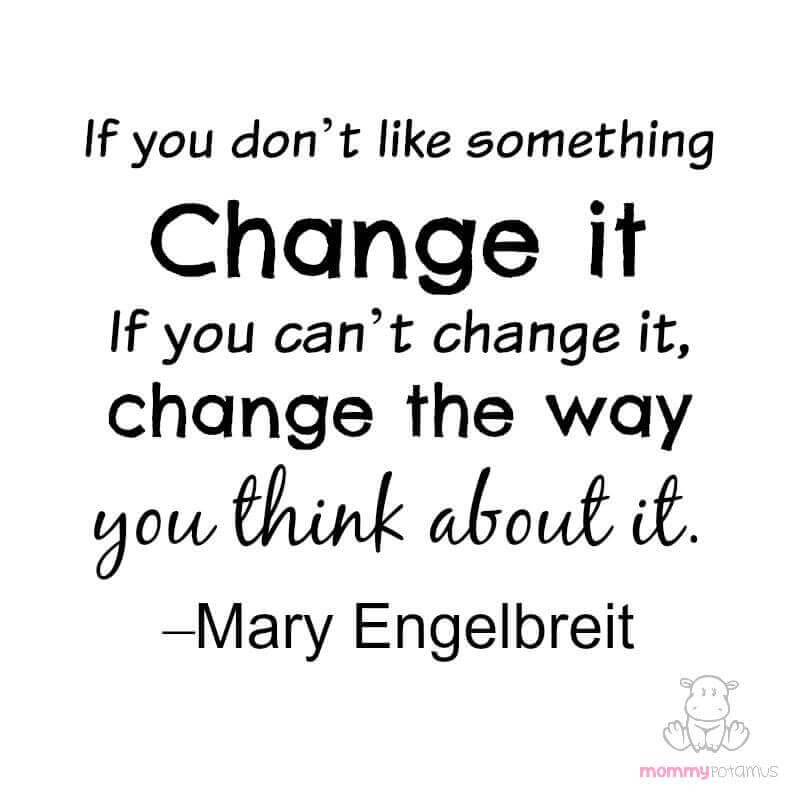
Do you ever secretly wonder if elves have found a way to siphon energy out of you – like gasoline smugglers out of a tank – while you sleep? Are you already wishing for a nap by the time you finish breakfast?
I get it.
As a mom of three and do ALL THE THINGS kind of person, I sometimes try to take on more than I should. Last year that approach caught up with me – I began to notice that I wasn’t recovering from stressful moments as well as usual. I was snippy, sleepy in the afternoons, and easily overwhelmed by little things.
I thought it might be due to adrenal fatigue – also called hypothalamic-pituitary-adrenal (HPA) axis dysfunction – so I took this this at-home test suggested by Dr. James Wilson in his book, The 21st Century Stress Syndrome. That led me to see a holistic doctor and confirm my suspicions, and then of course I promised to share with you anything I learn about taking good care of the adrenals.
- 1. Make sleep a priority
- 2. Get your groove on
- 3. If you drink coffee or tea, be strategic
- 4. Don’t forget about adaptogens
- 5. Cycle Carbs
- 6. Laugh (No joke!)
- 7. Meditate (Cheater’s Guide Below)
- 8. Don’t skip meals (especially breakfast)
- 9. Speaking of breakfast . . .
- 10. Take charge
- 11. Opt for downward dog instead of Iron Man
- 12. Take things with a grain of salt
- 13. Drink bone broth
- 14. Take mini-siestas
- 15. Optimize your magnesium levels
- Resources mentioned in this article
Well, after a lot of experimentation (and a few trips down paths that didn’t really go anywhere), I’ve found some things that work really well for me. Now, as I’ve said before, “boo boo kisser” is about as official as things get for me. I am not a healthcare provider, which is why I sought help from a professional in determining what adrenal fatigue treatment protocol is right for me. That said, Dr. Wilson (mentioned above) says that adrenal patients are their own best advocates, and encourages them to take steps toward self care. So, without further ado, here are fifteen ways to give your adrenals a big, squishy hug:
1. Make sleep a priority ^
Ahhh, if only it were that easy, right? I admit I am totally counting the days until my kids can wake up and make ME breakfast, but I’m not waiting until they let me sleep in to get good rest. Instead, I use these 18 science-backed tips to get deeper, better sleep. I don’t do all of them at once, I do incorporate most of them daily. Feel free to pick and choose what works for you.
2. Get your groove on ^
Or more accurately, your rhythm. One of the amazing things your adrenal glands do is release hormones to the beat of your internal clock, also known as your circadian rhythm. One adrenal hormone in particular – cortisol – helps the body wake up and get moving in the morning. Except when it doesn’t, because someone played a trick on your internal clock. (I’m looking at you, Thomas Edison!)
You see, our circadian rhythms are tied to light and darkness, which can be a challenge now that we have artificial lighting and blackout curtains. Instead of becoming sleepy at night, some of us experience a flood of cortisol which leaves us feeling wired. We find it difficult to get to sleep, then wake up exhausted instead of refreshed.
Tips #1 and #2 in the sleep post are helpful for getting back on track, but I wanted to share something else I started doing last winter as well. When it got too cold to go outside for 15-30 minutes of sun, I bought this daylight lamp and put it on the kitchen table. My kids sat under it and worked on art projects while I started breakfast, then Daniel and I joined them and got in our “light time” while we ate. It made a pretty big difference for me, so I still get it out when I’m feeling off. We’ll be using it daily when we start spending more time inside this fall/winter.

3. If you drink coffee or tea, be strategic ^
Most practitioners will tell you to avoid caffeine entirely, but one of the foremost experts on adrenal health – Dr. Alan Christianson – says it’s okay for individuals who have mild (not moderate to severe) adrenal fatigue. Christianson, who authored The Adrenal Reset Diet, suggests the following ground rules:
“Caffeine does have an effect on cortisol, but where you get your caffeine and when you have it can make all the difference. Avoiding caffeine is always an option, but not a realistic one for everyone. But if you have never lived without caffeine, you might be surprised by how calm and focused you can feel as a result. Try a two-week break from coffee or tea and afterwards make the use of caffeine a conscious choice, as opposed to a daily habit.
Another option is to switch your source of caffeine, and favor tea over coffee. Tea has caffeine like coffee, but it also has a calming compound called theanine that coffee does not have. Tea is also lower than coffee in theophylline, which stimulates the heart. For most people, consuming tea lowers their cortisol or else has little effect on it. Coffee tends not to raise your cortisol level, but it does prevent its reduction. In short, caffeine is most problematic after 9am. Those who are stressed can do better by limiting their coffee consumption to early in the day. Owing to the theanine, tea can be a better fit for later in the day or to assist with mental energy.” (source: The Adrenal Reset Diet, pages 115-116)
I’ve found that I do much better with caffeine if I mix it with gelatin and a healthy fat.
Also, here’s a quiz from Dr. Christianson that can help you determine how your adrenals are doing. “Stressed” is considered mild, “Wired & Tired” is moderate, and “Crashed” is severe.
4. Don’t forget about adaptogens ^
Unlike caffeine, which is a stimulant, adaptogenic herbs help the body adapt to stress and nudge it back toward balance. I’ve written a whole post about adrenal-loving adaptogens (along with safety info for pregnant and breastfeeding mamas), so in this post I’ll just focus on a few.
As the name suggests, adaptogenic herbs help the body adapt by gently nudging it toward balance in whatever way is needed. Here’s what Chris Kresser has to say about them:
“With adrenal issues, I’ll almost always start with adrenal adaptogens, botanical adaptogens like ashwagandha and rhodiola, eleutherococcus, which is Siberian ginseng, and some micronutrients that are good for general adrenal support, like pantothenic acid and vitamin C, because that’s kind of the lowest level of intervention and has the least potential for causing any adverse effects. And if you can fix adrenal problems just by doing that, that’s fantastic and that’s preferable, so that’s the good starting place. And people can really just do that stuff on their own. They don’t need a healthcare practitioner, really, to help with that stuff. ” (source)
One adaptogen I’ve found helpful that wasn’t mentioned is Peruvian ginseng, also called maca. You can find some recipes for incorporating maca here, along with my happy adrenal tea recipe that incorporates other adaptogens, plus masala chai adaptogen tea and my Adapt & Thrive Tincture recipe.
Kresser also recommends a good B-complex and vitamin C. You can find the brands I use on my shopping list under Superfoods and Supplements.
5. Cycle Carbs ^
In The Adrenal Reset Diet, Dr. Alan Christian outlines a plan for “carb cycling” that helps keep the adrenals on track. In it he recommends a very high protein meal with resistant starch and some carbs for breakfast, followed by a lunch with a moderate amount of healthy carbs and then dinner with even a little more. Carbs – which should be paired with fat and protein to help balance blood sugar – help to balance excess cortisol. That’s why we typically crave sugar and bagels when we’re stressed. (Binging on carbs is actually not a good idea because it causes blood sugar to surge, but a reasonable amount is considered beneficial.)
When consumed in increasing amounts toward the middle and end of the day, they can curb cortisol and allow melatonin to begin building up. That helps us keep our circadian rhythm on track and prepare for good sleep that night. Please note that Dr. Christianson does not advocate carb binging, just cycling a healthy amount of carbs in a way that positively influences cortisol production.
I really loved the lifestyle suggestions in The Adrenal Reset Die along with the carb cycling idea, although I wasn’t able to successfully implement the actual portions and recipes recommended. Though several components of the diet are very similar to what I typically eat, Dr. Christianson recommends less fat than I am accustomed to and suggests avoiding dairy, eggs and a few other things I personally embrace. I’m nursing so maybe that explains things, but I felt hungry all the time and did better when I simply applied carb cycling principles to my usual diet.

6. Laugh (No joke!) ^
“You’ve heard it said, ‘Laughter is the best medicine.’ Nothing could be truer for the adrenal glands,” writes Dr. Wilson, adding that “When you laugh, stress decreases and all the mechanisms in your body relax. When the body is relatively free of stress, even during those brief moments of levity, the adrenals are much freer to recover and rebuild.” (source: Adrenal Fatigue: The 21st Century Stress Syndrome)
Here, I’ll help you get started.
Sorry not sorry. As you may have noticed, I love goats. 🙂
7. Meditate (Cheater’s Guide Below) ^
Is it just me, or does the thought of meditating conjure images of sitting in lotus position while children shove peas up your nose and teepee the house? I’ve to to admit that when Dr. Christianson recommended meditation in The Adrenal Reset Diet, I nearly dismissed the idea.
I’m so glad I didn’t, because as it turns out meditation and a few other techniques stimulate the relaxation response, which can profoundly improve our well-being. According to Dr. Wilson:
“The body shifts from sympathetic to parasympathetic nervous system dominance; breathing, heart rate, and oxygen consumption slow down; muscles relax; the brain predominately generates the slower alpha waves; and blood pressure may drop. These changes occur within a few minutes of beginning an activity that produces the relaxation response, whereas they happen very gradually over hours while sleeping and often not at all while engaging in a leisure activity. Of particular relevance to adrenal fatigue recovery is that during the relaxation response, stimulation of your adrenal glands diminishes so they can rest, and, in addition, all the tissues in your body become less sensitive to stress hormones secreted by your adrenal glands. This means that every part of your body has a chance to return to normal instead of being constantly on red alert.” (source: Adrenal Fatigue: The 21st Century Stress Syndrome)
Two simple options for stimulating the relaxation response
1. Dr. Herbert Benson, the Harvard professor who coined the term relaxation response, gave specific instructions for activating it. You can find the video explanation here, and a print version here.
2. Another option for “lazy meditators,” according to Dr. Christianson, is to use light/sound machines or binaural beats. “When you see lights or hear sounds that pulse in certain frequencies, your brain waves mimic those frequencies. During meditation, the brain goes into what is called and alpha state.”
Light/sound machines use both visual and auditory components to help the brain achieve an alpha state, while binaural beats use only sound. The light/sound machines are pretty pricey, but I decided to invest in one because I knew I would use it regularly. I have, and it works really well as a “reset” button when I’m tired and not thinking clearly. (You can find the one I use on my shopping list page.)
A more affordable option by far is to listen to binaural beats on headphones. Because alpha waves are encouraged by pulsing sound alternately into each ear, headphones are a must. Dr. Christianson likes Brainwave, which you can find on Amazon.
8. Don’t skip meals (especially breakfast) ^
It can cause your blood sugar to crash, which stresses the body and calls on your adrenals to release hormones that balance things out. On the flipside, eating sugary or super high-carb foods cause blood sugar to soar and also stress the body. Dr. Wilson recommends eating regular meals with snacks in-between to keep blood sugar stable.
9. Speaking of breakfast . . . ^
Good, high-quality protein first thing in the morning is the hallmark of an adrenal-friendly way to start the day. Unlike cereal, pancakes, bagels, juice, and other “breakfast foods” – even fruit – that raise blood sugar, protein keeps blood sugar stable. This allows the body to keep its precious early morning surge of cortisol (which is produced by the adrenal glands) for more important uses.

10. Take charge ^
According to Dr. Wilson, “Being in charge is important for adrenal health; researchers have found from earlier experiments that rendering an animal helpless is one of the most rapid ways to deplete its adrenals” He then goes on to say that “putting yourself in charge does not mean doing it all yourself.”
Instead, he describes an approach to dealing with stressful “energy drains” by changing them, changing the way we respond to them, or eliminating them. His book gives some great suggestions for how to do that.
11. Opt for downward dog instead of Iron Man ^
According to this PubMed article,”There is a direct link between stress and the adrenal glands, and the physical stress of overtraining may cause the hormones produced in these glands to become depleted.”
Walking, yoga, tai chi or qigong plus weight training 1-2x’s a week are typically recommended for individuals needing to boost adrenal function.
12. Take things with a grain of salt ^
“Salt craving is a common symptom in all stages of adrenal fatigue,” writes Dr. Wilson in his book, adding that “this is your body’s way of crying out for something it needs. Our salt-phobic society has deprived millions of people struggling with adrenal fatigue of something that would decrease their symptoms and speed their recovery.”
Why do those with tired adrenals crave salt? Without getting into the complex details, it’s because the adrenals release the hormones that regulate salt, potassium and water in the body. According to Wilson, the body’s craving for salt are an attempt to lighten the load on the adrenals, so it’s important to salt food to taste.
Concerned about salt possibly causing high blood pressure? Check out this series.

13. Drink bone broth ^
It contains “spark plugs” (also known as minerals) that your adrenals need to thrive. Here’s how to make it.
Another mineral-rich drink is this Himalayan Salt and Vitamin C Adrenal Tonic. It’s so simple it can only be called an un-recipe, but it has been so helpful for me.
14. Take mini-siestas ^
“During the day, you will probably notice that you have particular times when you feel more lethargic, cloudy headed, or have other symptoms of adrenal fatigue. Try to schedule your breaks so that when these occur, you can physically lie down for 15-30 minutes.” (Source: Adrenal Fatigue: The 21st Century Stress Syndrome)
I have done this and it really helps. I usually set my kids up with an activity and watch them from the couch.
15. Optimize your magnesium levels ^
According to this study, magnesium deficiency can induce anxiety and HPA axis dysregulation (also called adrenal fatigue). Magnesium is beneficial sleep, stress support, detoxification and more, but not all forms are bioavailable. For details, check out this post on the benefits of magnesium and this one on choosing the best magnesium supplement.
Resources mentioned in this article ^
The Adrenal Reset Diet by Dr. Alan Christianson
Adrenal Fatigue: The 21st Century Stress Syndrome by Dr. James Wilson




